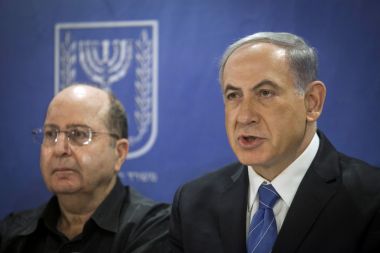British Jews and Muslims: Do not make the UK a proxy war zone

Britain's Muslim and Jewish community leaders have united in calling for "peace, wisdom and hope over conflict" in Israel and Palestine. They said that they must not export conflict, but peace.
In a joint statement, the Muslim Council of Britain and the Board of Deputies of British Jews said there was no doubt that both communities had "deeply held views" about the conflict. They acknowledged there were disagreements about the origins, current reasons and solutions to end the conflict.
Both insisted however that there are also points of agreement.
In the statement they said: "The death of every civilian is a tragedy, and every effort should be taken to minimise such losses. The targeting of civilians is completely unacceptable and against our religious traditions. We pray for a speedy end to the current conflict and for a lasting peace for all.
"In spite of the situation in the Middle East, we must continue to work hard for good community relations in the UK. We must not import conflict. We must export peace instead."
In a reference to some of the intemperate statements made about developments in Gaza, they agreed that everyone has the right to voice their political opinion, whether in a rally or on social media. But they said: "We must be mindful of how we convey our protest. There can be no excuse for racism, violence, or other forms of intimidation, when expressing views in the media, on the streets, outside shops or online."
The statement continued: "We condemn any expression of Islamophobia, Antisemitism or any form of racism. We call for Muslim and Jewish communities to redouble efforts to work together and get to know one another.
"We need constructive dialogue to limit our disagreements and identify the widest possible range of areas for cooperation. There are more issues that unite us than divide us."
Israel and Hamas agreed a truce this week after the deaths of 2,143 Palestinians and 70 Israelis.
Latest figures from the Community Security Trust, which monitors antisemitic attacks on Jewish people, showed them at their highest for five years.
Dr Jonathan Romain, a rabbi in Maidenhead and an influential figure in inter-faith dialogue, said: "The statement is very welcome. It is vital for national cohesion that we do not import the problems of the Middle East and make Britain a proxy war-zone. The good relations between most British Muslims and Jews should be used as evidence that there is no inherent antagonism between the faiths, that Israel/Gaza is a political problem that requires a political solution, and we can best help by showing how it is possible to live side by side in harmony. If we cannot achieve that here, what hope for them over there?"
Dr Muhammad Bari, former secretary general of the MCB, said: "Anti-Semitism is wrong; Islamophobia is wrong. Arabs are Semitic as well. It is in the interests of both the communities to prevent accelerating bigotry - whether in the media or on the streets. There are more things that unite Muslims and Jews than divide them.
"The joint statement acknowledges that the two communities have deeply held disagreements over the Israel-Palestine conflict. Israel is armed to the teeth and has been expanding illegal settlements, blockading Gaza and acting disproportionately in direct conflicts.
"The death rate, destruction of people's houses and infra-structure from two sides give clear evidences. It is a matter of justice and should be solved politically. The western powers are seen as either impotent or complicit.
"Muslims and anti-Israeli (not anti-Semitic) people can only put pressures on our government through legitimate lobbying and public demonstrations. Organisers claim they are doing this in civil and legal ways."











